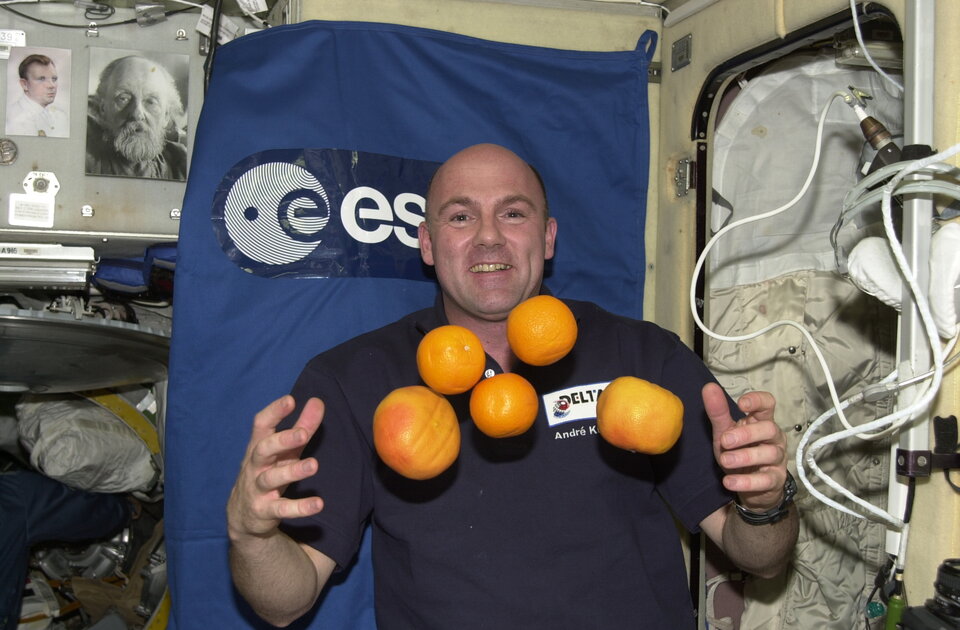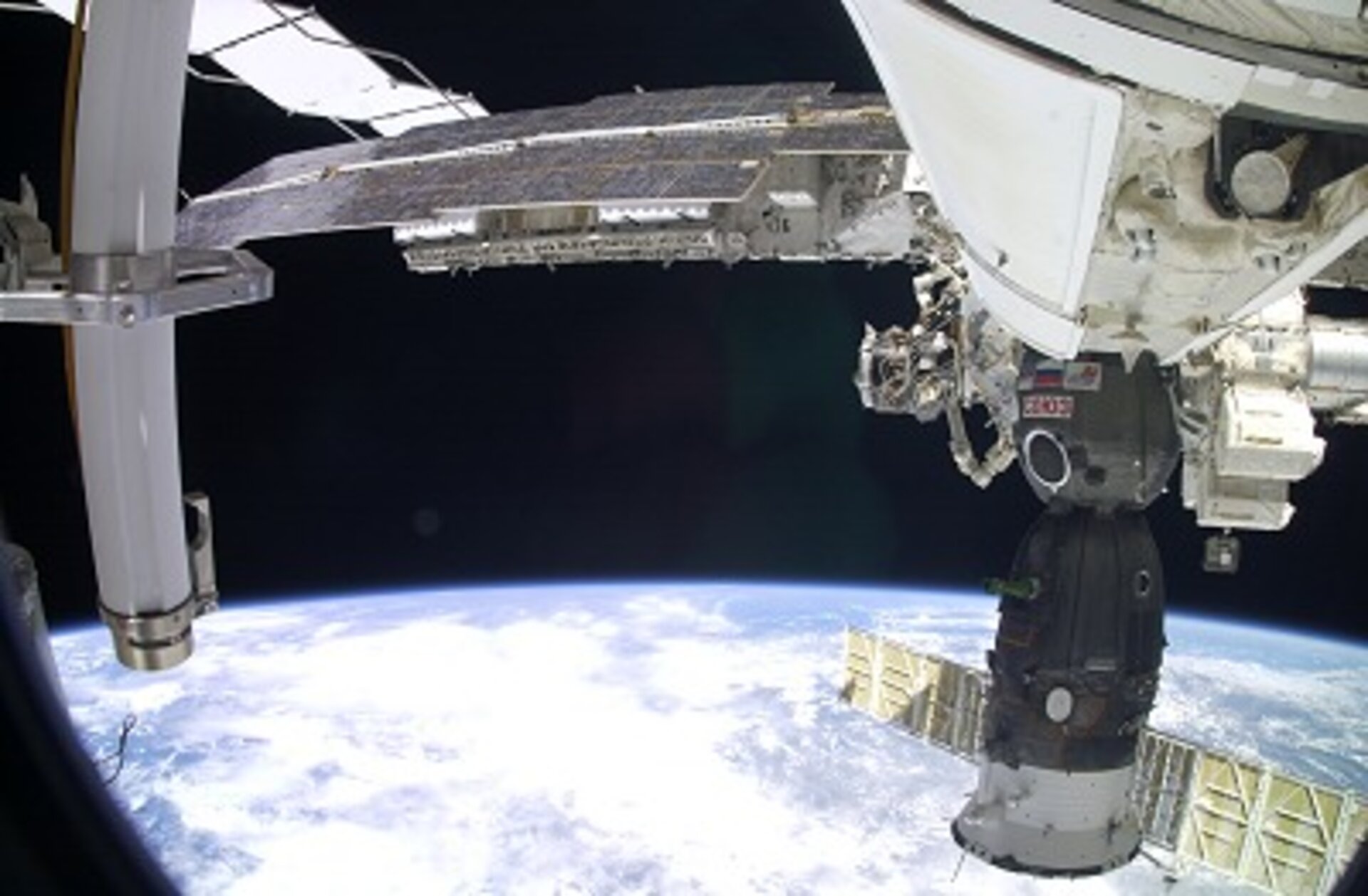'It is awkward being in weightlessness'
After Wubbo Ockels (1985), ESA astronaut André Kuipers is now the second Dutchman to know what it is like to live and work in space. At the end of April he spent nine days on the International Space Station, where he worked on an extensive scientific and educational programme.
With both feet firmly back on Earth, Kuipers described his mission as the experience of a lifetime. "It was amazing, better than I had ever expected. All the different colours of the Earth – such brilliance. Gliding past huge clouds and vast expanses of water. You see cities from above and lightening on top of the clouds instead of underneath. At times like that it hits you that you really are in space."

Despite the many parabolic flights he has made for ESA, Kuipers still had to get used to being in weightlessness. "It is awkward. When you are working it is quite tricky, each movement is really slow and you have to be careful about where you leave things, otherwise they just float away."
In his free time Kuipers experienced the fun side of being in weightlessness. Sleeping and waking up were special moments during his stay outside the Earth's atmosphere. "Its great fun to gently push off the wall and float over to the other side of the module. And I enjoyed being able to turn upside down during television interviews".
Technically the Soyuz capsules used for the DELTA Mission functioned perfectly. The journey to the Space Station, and then nine days later the journey back to Earth, were both faultless. Kuipers, "It was just like we had trained in Star City. My compliments to the trainers and instructors. We couldn't have been better prepared."

There were a few problems with the science programme. "At times it was stop and start, but that is part of spaceflight. Where the science is concerned, on all flights there are always a few things that don't go as you might expect. The possibilities for improvisation are limited. We will have to wait and see, but I expect that about three-quarters of the programme will have been successful. Of course I was hoping for 100 percent and I am disappointed that there were some problems, but unfortunately that's all in the game."
As Flight Engineer, Kuipers was responsible for undocking the Soyuz from the Space Station. After he had checked all systems together with the other two crewmembers, and the command had been received to return to Earth, the Soyuz capsule started the descent. "When you enter the Earth's atmosphere there is a pink and then an orange glow around the capsule and then you can hear the wind rushing past, louder than you've ever heard it before; a fantastic experience."

Back on Earth, after a medical check-up and still at the landing site, Kuipers completed one of the scientific experiments by taking blood pressure measurements. The following two weeks were spent in quarantine and primarily used to finish the experiments.
After last Saturday, the second Dutch astronaut will have many more opportunities to talk about his space adventure. He has now returned to the Netherlands and will spend the next couple of weeks attending public events and doing interviews with the media.


